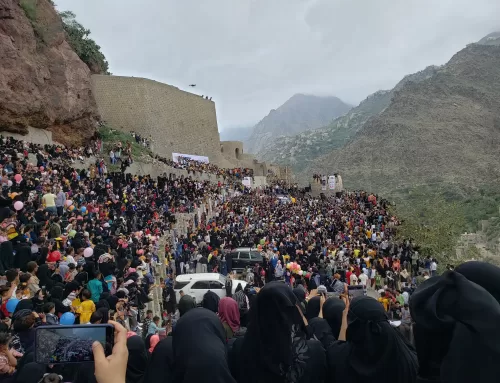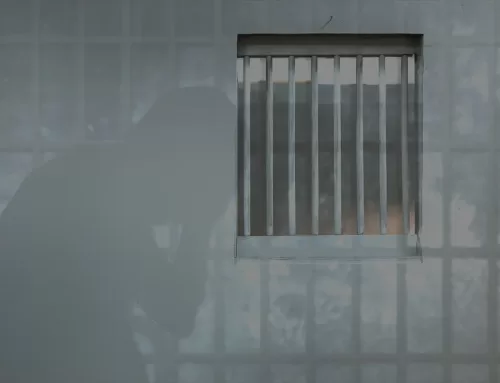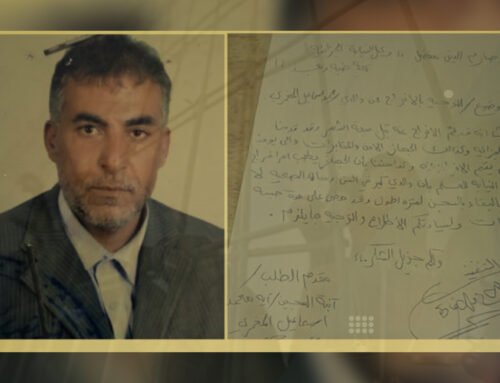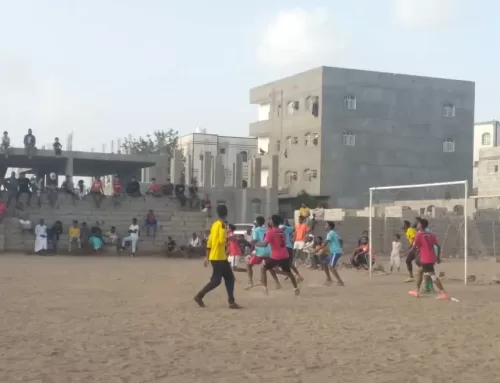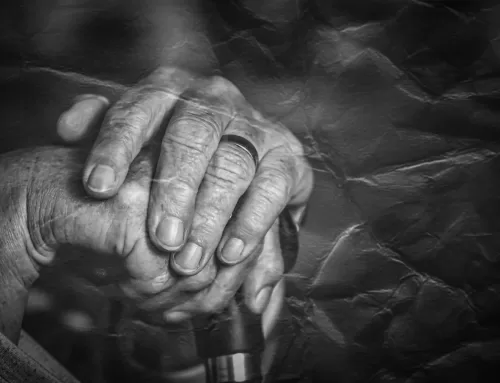“the Country of Food”
by: Mansour Abolfadl
October 31,2021
The newscaster was talking about the AnsarAllah “Houthis” opening of the second Martyrs’ garden [a cemetery], as one of the achievements witnessed by the district of Bilad At Ta’am, in the province of Raymah, the territory that used to export food after their lands was replete with harvest, today they are turning their fields of grain and corn and plantations of coffee into cemeteries and graveyards. Oh God! How can this enchanting country throw its own children, the flesh and blood of her heart into the mouth of death?
It seems that hunger has made this green country draped in black, unwillingly and unusually. In the past, it was one of the most productive areas of Yemen, cultivating corn and grains of all kinds, and that was why it was called Bilad at Ta’am ‘ the country of food’ or, as the forefathers used to call it ‘the silos of Raymah’.
The harshness of life was nothing new to us, the children of this land, but the war exposed us to new levels of misery.
One day in August 2019, in the Aluja area in the Al-Jafariya district, I came across an elderly man with sunken eyes. Hunger was ripping his intestines to vomit insults in the face of war and Houthis. He told me, while his tears were about to drop from his eyes: “The Houthis stuck their fingers in our mouths and snatched the morsels from them. One of my relatives told me that a relief organization was distributing food aid, so I registered my name after I found that I had nothing left to feed my children. Our salaries were cut off for years.”
“The Houthis stuck their fingers in our mouths and snatched the morsels from them. One of my relatives told me that a relief organization was distributing food aid, so I registered my name after I found that I had nothing left to feed my children. Our salaries were cut off for years.”
He continued in his simple tone :“They cut our salaries, they want us to die of hunger. I stayed with my family waiting for the long-awaited aid distribution, and there was no hope. Every morning I walk a distance of two hours until I reach the warehouse gate and ask its keepers: ‘When will they distribute it?’ They answer me. With their usual apathy: ‘it is not the time.’”
The elderly continued:“Ansar Allah group decided to destroy this aid as a result of a dispute that broke out between them and the committee in charge of distributing, so Houthis burned large quantities of it. I saw it burning and a question came to my mind: ‘Is today, as every day, when my children eat only one meal?”
When I asked him if he had any source of sustenance other than this aid, he raised his withered eyes to me, and from behind them was casted a look of deep bitterness. He replied,“do you suppose that it would be possible for you to live if you were not a fighter on a front, and did not offer your children as sacrifices for the fire of war?”
“do you suppose that it would be possible for you to live if you were not a fighter on a front, and did not offer your children as sacrifices for the fire of war?”
On another morning, I visited Al-Joub Uzlah [sub-district, settlement] with a population of more than 14,000, which is the second settlement of Kusumah district in terms of area, as the villages in this area are sprawling and most of the villages do not have a motor road. In one of the relief programs, Ansar Allah armed group “Houthis” set the distribution center for the beneficiaries of Al-Joub settlment in the Maasah center of the settlement of Al-Musbahi. We do not know what criteria the selection of a distribution center for a settlement was located in another settlement was based on.
Women, elderly people, and those who live in remote villages such as Bani al-Kadar, Jabal Saleh Saeed, Hakar and Maar are compelled to walk for three to four hours until they reach the distribution center. Some people are forced not to receive the aid due to long distances and inability to reach the center.
One of those affected by the denial of their aid told me:“I arrived at 11:00 A.M on Thursday, July 18, 2019 at the aid disbursement center in Ma’asah village of al-Musbehi settlment, after two hours of walking from our house in the settlement of al-Joub, where my father in his fifties and my siblings who share loaves of dry bread, nothing more on most days, were waiting for me. I arrived at the dispensing center and spoke with the representative appointed by Ansar Allah to disburse the aid. He said to me, ‘The fighters on the fronts are more important than you, go back, eat whatever!!.’ I begged him a lot, to no avail. I returned to the village in the afternoon, and my father, mother and brothers were waiting for my return and watching me from the roof of the house overlooking the road. I felt crushed when I saw my father with his hand on his cheek.”
He ended his words bitterly.
Thus, the dire humanitarian conditions in Raymah have been exacerbated for a long time, and the war has further aggravated the severity of hunger until the veins of her children have dried up. Children are the most visible tragedy of the war.
The areas of Bani al-Khouli, of Bilad At Ta’am district are inhabited by a large number of marginalized people, a 6-years-old boy Salem suffers from severe malnutrition, looks more like a skeleton. His father Rashid, 36 years old, said, “My son Salem suffered from severe malnutrition. He is now better than he was a year ago. White hands reach out to us from time to time, but the aid of relief organizations suffers either long delays or it reaches us almost rotten due to its long-term storage in organizations’ warehouses, and because of poor storage as well.“My eldest son, Ma’moun (12 years), suffers from atrophy, and since his birth, I do everything in my power to treat him. Sometimes medicines are cut off for him for months because of my financial circumstances, which make me stand in front of him helpless and broken.” Rashid concluded.
I Listen to all these stories and wonder, how many blisters did this war leave on the bodies of the poor? Afflictions along the length of the days in which they starved, and the length of days of war that disfigured the face of their simple life.
The wounds of war have no end; as the ‘‘country of food’’ suffers from hunger and impoverishment, it no longer has a sense out of its name.


